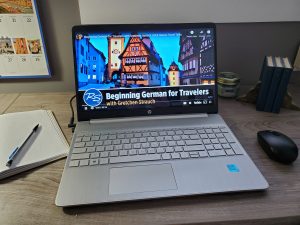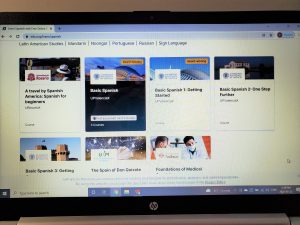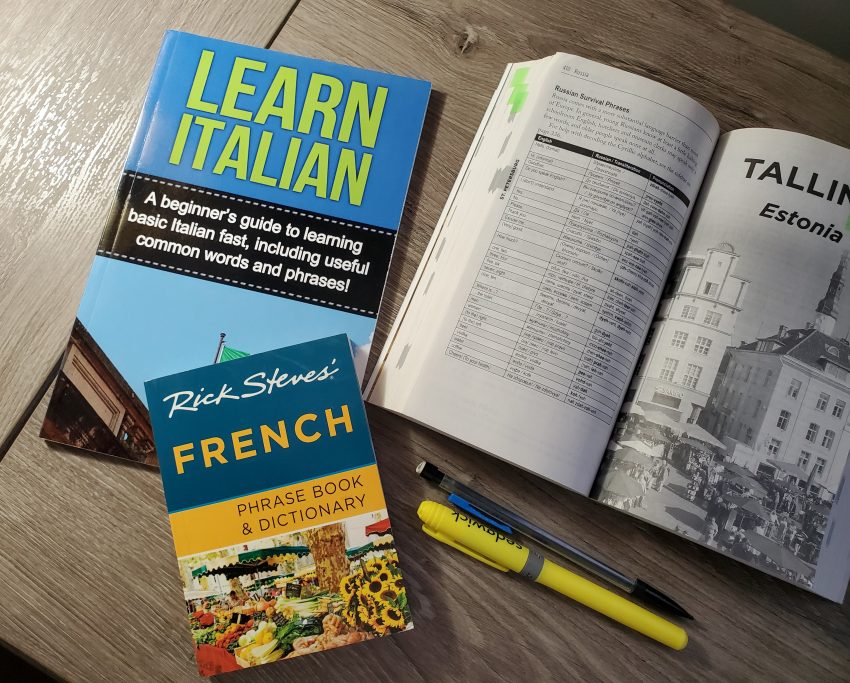Although English is the language of commerce in the European Union, and most folks in tourist and related industries speak English, I have found that a few choice words or phrases spoken in the native language is appreciated when you are travelling.
In my case it is also a source of hilarity as my pronunciation is horrendous, which I blame on being tone deaf. It is better still than having to resort to a lively game of charades to get my point across. On a recent trip to Paris I dredged up all of my high school French in order to communicate with servers and shopkeepers. It was dismal but I was served with a smile, and in many cases recognized for being Canadian. Not sure if that is good or bad.
Even in countries where English is the primary language some words or phrases, especially slang, can have a different meaning than it does to us in Canada. Being aware of the differences can help to avoid embarrassment or disappointment. For example, in the UK chips are fries, crisps are potato chips, jacketed potatoes are baked potatoes, but mashed are just mashed.
Regardless of my shortcomings I have tried to learn at least the basics of please and thank you and hello and goodbye, and I would like to learn more. Of course you may wonder why when many Europeans working in the tourist industry speak English. The reason is that we love to move beyond the usual tourist areas and visit the restaurants, shops and markets where the locals go. This requires a better grasp of the language and a few more phrases.
It can also be very helpful in understanding documents such as your hotel or restaurant bill, especially when a service charge, or other unexpected expenses are included.
I am not expecting to be fluent in another language but I would like to know a bit more than I do. I have found many options, both free and for a small cost to help me do that.
- Search for free online courses.
I recently found that Rick Steves offers language classes that you can watch over and over again to help you understand and learn the language better. Check out https://www.ricksteves.com/watch-read-listen/video/travel-talks and scroll down until you find the Languages heading. There are four (4) one hour YouTube videos on Italian, French, German and Spanish. I have bookmarked the German class for viewing before our trip to Munich in the spring.
Handy sites like EdX (www.edx.org) and Coursera (www.coursera.org) offer free online courses that you can work through at your own pace. These are more involved and require more of a commitment but if you plan to travel frequently or for a longer period to a specific country it is worth the time invested. Before our grand tour of Italy, whenever that may occur, I plan to learn as much Italian as I can.
- Find guidebooks that include words or phrases.

Many guide books include survival phrases for the destination covered. These often have the phonetic pronunciation which may or may not be helpful but is better than nothing.
I have also purchased books to learn different languages and find that the written page combined with an online course that focuses on pronunciation and nuance is a great combination.
On cruise ships we often participate in language classes offered by the Cruise staff. With such a diverse crew there is always someone fluent in the language of your destination and they can give you those survival phrases for your next port. It is surprising how many words you can master in an hour when you are focused only on the important ones for your visit.
- Upload Google Translate to your phone or tablet.
This is an invaluable travel resource to help translate menus, signs and even your own directions or questions. We will download the language we need before leaving home so it is available even if WiFi is not.
Learning the language is not essential before you travel, nor will it make or break your trip, but it is a nice way to show respect, to be able to integrate easier with the locals and to enrich your travel experiences.
